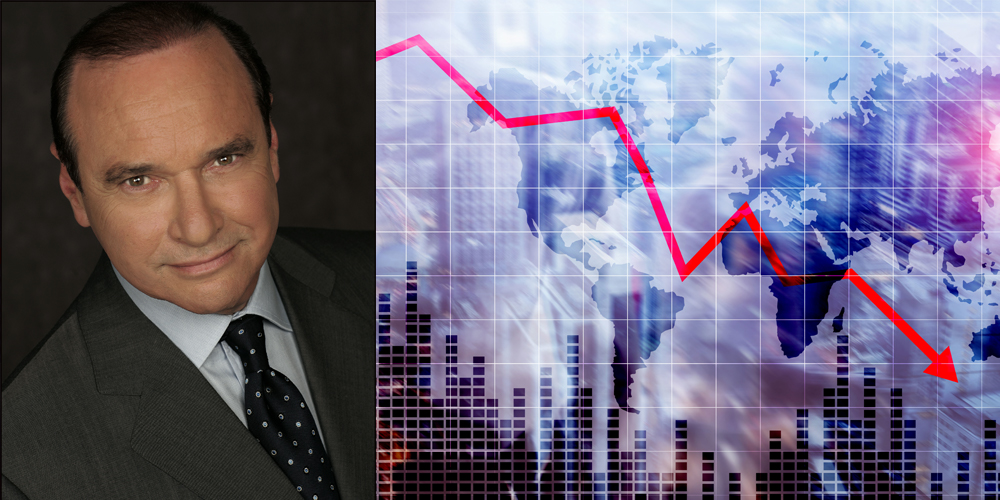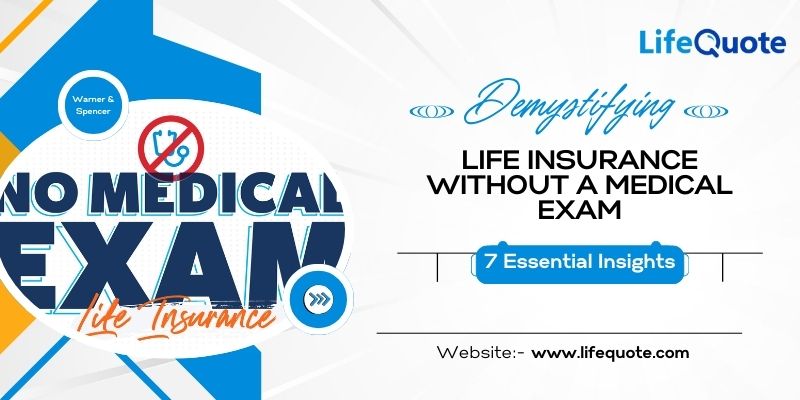- Speak to a licensed sales agent!
- (800) 521-7873
How Coronavirus and The Stock Market Is Affecting Your Life Insurance Policy

An Important Message from our CEO, Eugene C. Gordon, regarding your Life Insurance Policy In this Health and Economic Crisis.
The new coronavirus is taking its toll on virtually all aspects of life in America. Schools, workplaces, sports, religious institutions, entertainment, and recreation are being postponed or canceled. International and even domestic air travel are at a standstill and new arrivals are being quarantined. The financial sector is also one of the most affected aspects of the crisis, especially the stock market, which exerts its influence on almost all other financial institutions – including the life insurance market.
Despite efforts from the government and major private companies to mitigate the effects of the Coronavirus on the stock market, shaky shareholders remain uncertain of what the future holds for their investments, and the tension has plunged the market into its worst performance in decades.
The Dow and S&P 500 in the U.S. experienced their worst falls since 1987 imploding on Monday in the worst drop since the outbreak. The S&P 500 has fallen 12% since the beginning of the virus and the DJIA has dropped 20%, the lowest it’s fallen since the 2008 recession.
The fall in Brent crude oil prices, as well as nationwide closures of businesses and entertainment centers, and even Disney properties, is having a devastating effect on consumer spending and thus, a major blow to stock performance. U-S cities, such as New York City has even begun to shut down its restaurant and bar scene, shutting down a significant portion of tourism revenue. All of this is bad news for policyholders of certain types of permanent life insurance that rely on stock market and institutional performance.
How Stock Performance Affects Life Insurance
The life insurance industry has two major policy types: term life insurance vs permanent life insurance. Term life insurance is a simple, straightforward policy designed to cover you for a certain number of years (generally from 5 to 30 years). The primary purpose is to receive the death benefit, which is a lump sum of money paid to your beneficiaries if you die while the policy is in force. The policy expires at the end of the set period and some are renewable or convertible. The death benefit is a fixed amount and is guaranteed as long as you continue to pay the premium. Most premiums are also fixed for the entire period.
On the other hand, permanent life insurance, as the name implies, is designed to cover you for the rest of your life rather than a set period. Some permanent life products, such as Whole Life and Universal Life can generate guaranteed cash value. And their performance is based on the performance of the insurance company and not on specified underlying investments. Others, such as Variable Universal Life insurance are mostly invested in the stock market and are therefore at risk. In a popular new version, a hybrid called Indexed Universal Life, the policyholder can buy options often on the S&P on a year-to-year basis, with a small portion of their assets… thereby risking less principle. Life insurance policies such as these are very enticing because of tax-free growth on investment and favorable tax treatment later when money is withdrawn and are often used for retirement. On the downside, all cash value insurance has some inherent risk above guarantees.
This Is What Could Happen to Your Investment-Based Policy
Most of the features that attracted you to an investment-based policy, such as dividends, current interest or tax-free profit and gains, are not guaranteed. Those perks are tied to the performance of either the insurance company, or the stock market, where your money is invested. If the stock market or companies are doing well, you benefit from the increase. But, if it is performing poorly, you bear the brunt like other direct investors. So, with the present situation, you may need to pay more in premiums to save your policy, since the investment that was meant to buffer it is dropping.
Depending on your situation, you may not have the means to fix an underperforming policy. You may paint yourself into an economic corner where you can’t get out and build up future debt that is insurmountable.
The Answer is “Standby” Term Insurance: A Way to Market-proof Your Financial Future
Unlike cash value and investment-based policies, term life insurance is not tied to market volatility, and is downright cheap when compared to permanent coverage. You can choose affordable coverage from top-rated companies while you recover from this financial hit. In fact, since the President declared a national health emergency, there has been a 50% surge in life insurance applications. People are concerned about the need to protect their families and term life insurance guarantees stability.
We are not suggesting you purchase life insurance protection because of the risk of dying from COVID-19, rather we think it’s an important component to protect your net worth, investment potential, and even your earned income. The premiums of equity-building permanent life insurance may simply not be affordable for many of you right now.
Sample Rates
Here are sample rates on what it could cost you to purchase a 10-year term life policy in the state of Florida.
Sample monthly premium rates for healthy, non-smoker males:
| Age | $500,000 | $1,000,000 |
| 30 | $13.76 | $20.68 |
| 40 | $18.06 | $28.71 |
| 50 | $40.62 | $71.07 |
| 60 | $108.87 | $204.27 |
*Rates vary from state to state. This is not offer; rates are subject to company underwriting and approval.
Sample monthly premium rates for healthy, non-smoker females:
| Age | $500,000 | $1,000,000 |
| 30 | $12.04 | $18.04 |
| 40 | $16.34 | $25.28 |
| 50 | $33.82 | $58.77 |
| 60 | $73.97 | $134.77 |
*Rates vary from state to state. This is not an offer; rates are subject to company underwriting and approval.
Is the Safety of My Policy Guaranteed?
There are few industries as regulated as life insurance, assuring that insurance companies meet their financial obligations to policyholders for more than a century. The U-S life insurance market has withstood wars and natural disasters; it is resilient and financially strong, so it’s not surprising to know that about 57% of American adults own a life insurance policy. For many of these policyholders, their decision to buy was based mainly on the goal of obtaining financial protection against unpredictable future events.
How LifeQuote Can Help You Comparison Shop For Insurance
LifeQuotE ends with an “E” because we stand for Excellence, Education, Experience, and now for Emergencies. We have highly experienced life insurance specialists that have witnessed and overcome different economic downturns. We were here for the 1987 market crash and others to date, and we know what worked then and what did not. We have solutions to save or protect the insurance you own, and we remain resolute in our commitment to protect you and your loved ones even in this tough economic time with affordable term life insurance policy. Getting your policy from us today is as simple as filling out this free quote.




